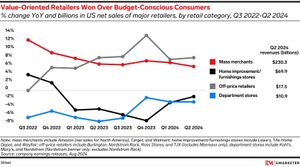The Bank of Japan (BOJ) is set to increase its interest rates, reaching levels not seen since the global financial crisis of 2008. Scheduled for announcement this Friday, the anticipated rise from the current rate of 0.25% to 0.5% has already stirred discussions among investors and analysts alike.
This potential hike reflects the BOJ's commitment to gradually pushing rates toward the healthier benchmark of 1%, which is believed to support Japan's economy without triggering overheating or cooling. "The market has not reacted negatively to Trump’s comments, so the BOJ will likely proceed with the rate hike," noted Naomi Muguruma, chief bond strategist at Mitsubishi UFJ Morgan Stanley Securities.
The proposed increase follows previous attempts to signal such moves, especially after last July's unexpected bump, which shocked traders and led to notable global market declines. Recent recovery of the yen has been attributed to strong market pricing of the impending hike, currently estimated at 90% likelihood. Investors are closely watching the remarks from BOJ Governor Kazuo Ueda following the announcement, which may indicate the pace of future rate adjustments.
The BOJ’s current scenario is shaped by continuous inflation exceeding the target 2% rate, following substantial wage increases which have lifted economic forecasts significantly. Analysts predict another increase could materialize as soon as September, contingent on U.S. growth and inflation trends. Mari Iwashita, senior economist at Daiwa Securities, commented, "After the increase to 0.5%, the BOJ is likely to raise rates about twice annually. The pace will depend on how U.S. growth and inflation develop and their impact on Federal Reserve policies."
Japan's economic outlook remains cautiously optimistic, with the government maintaining its growth assessment, buoyed by consistent wage increases and solid corporate performance. A report from the Cabinet Office indicated strong recovery trends among the private sector, which generates more than half of Japan's GDP. Despite this positive sentiment, concerns linger around the potential market reactions to U.S. political policies under President Trump, as well as fluctuations within global financial markets.
Investor anxiety is palpable, especially after previous events where similar BOJ decisions led to significant market volatility. Notably, the flash crash amid the last rate hike raised questions among investors about the stability of stock markets. Analysts are now pondering whether the proactive communication from BOJ officials will prevent similar occurrences this time.
The government’s economic report points to Japan’s increased investments and greater job creation forces, particularly among those companies heavily invested within the U.S., nudging Japan’s trade and investment strategies to align closely with American economic policies announced by the current administration.
While expectations point to reasonable growth, it'll be interesting to see how the January reports shape the direction of monetary policies and the central bank's commitment to maintaining stable inflation and wages amid various external economic pressures.
Market watchers remain alert, questioning whether the expected interest rate hike from the BOJ will lead to increased volatility across regional and global markets. The looming question remains: will the substantial restructuring of Japan's interest rate approach position it favorably for sustained growth, or lead to detrimental impacts on the stock markets as seen previously?
Reflecting on the situation, the BOJ's new approach is seen as necessary, with the strains of low rates potentially harming long-term economic prospects. Given the elderly demographic posing their own set of challenges, rising interest rates may offer some respite or additional hurdles for Japan's fragile recovery story.



